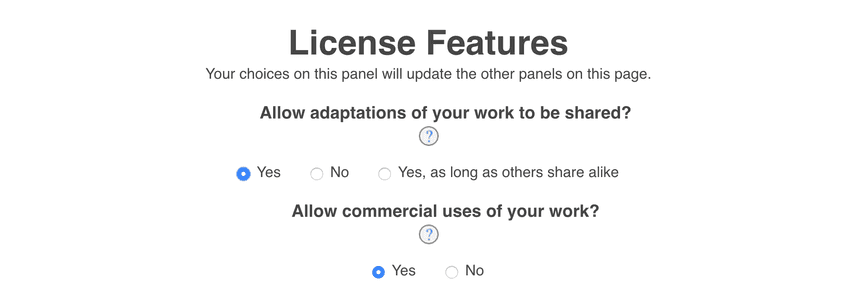Data Licensing
Introduction
Dolt is a data format. DoltHub is a collaboration platform for data stored in the Dolt format. When sharing copyrighted content the terms of that sharing are governed by a license. In this post we highlight some common licenses attached to data that is being made publicly available. It is important to note that in order for a license to be meaningful, the data must be copyrightable. We will cover the legal test for copyrightable material in a follow up post.
Before diving into a discussion of licenses it is important to make clear this blog post does not constitute legal advice. We are highlighting attributes of licenses that are freely available to attach to data over which you have ownership. The choice of which license is yours to make, and if the data is potentially sensitive it is best to seek legal advice before opening it to public access.
As far as Dolt is concerned, we support adding a LICENSE.md file. This can contain your own custom license, or an off the shelf license. You can read about how to make use of that feature here. The rest of this post is devoted to highlighting the tools offered by Creative Commons for attaching a license to your data. Currently the best way to use the Creative Commons licenses with Dolt is to reference them in your LICENSE.md file, as per the FAQ page:
If the platform where you’re uploading your content does not support CC licensing, you can still identify your content as CC-licensed in the text description of your content.
If Creative Commons doesn't work for you, checkout Community Data License Agreement. There are many ways to license your data, this post focuses on the goal of making data available to the public via DoltHub.
License Attributes
The Creative Commons offer a number of "license attributes" which can be combined. When the attributes are enumerated there are six total licenses. Each one is summarized here. Helpfully Creative Commons provide tools to help you choose a license based on the attributes you require. We summarize the major license attributes, and refer you to the license chooser:

CC0 Dedication
In contrast to a license, CC0 dedicates a creative work, which includes a copyrightable database, to the public domain. It is important to distinguish between public access and public domain, see this article for a helpful discussion of the distinction. Creative Commons provides a brief description of CC0 and its implications here, and an FAQ section here.
Attribution
Fundamental to all licenses, distinct from CC0 which represents a commitment to the public domain, is attribution. All other license attributes are layered on top of attribution.
No Derivatives
This restricts users of the data from distributing derivative versions of the data. That means remixes, transformations, and re-workings of the data cannot be distributed without breaching the license terms.
Non Commercial
Users of the data may not use the data for ends which are primarily commercial. From the Creative Commons Wiki page for the interpretation of non-commercial use:
NonCommercial means not primarily intended for or directed towards commercial advantage or monetary compensation.
Share Alike
This requires that any work that is derivative must be shared under the same conditions, that is under the same licensing terms. This license was inspired the GNU licenses:
ShareAlike is inspired by the GNU General Public License, used by many free and open source software projects.
Conclusion
The Creative Commons provide a suite of standardized tools for making licenses available for folks that want to make their data accessible to the public. The licenses are written with human readers in mind. So, if you want to share data, head on over to Creative Commons License Chooser, make a choice, and share your data. Our Getting Started Guide includes details on how to add the license of your choosing, and share your data.
